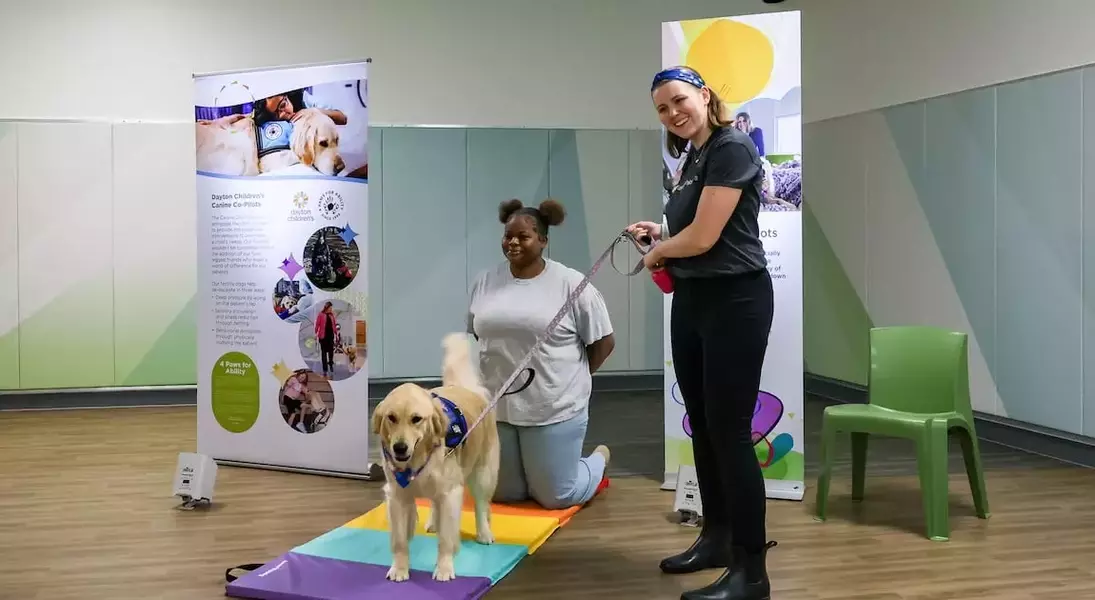
Innovative approaches in pediatric mental health care are emerging, with therapy dogs playing a pivotal role. At Dayton Children’s Hospital, these specially trained canines assist in calming children and preventing the need for more intrusive interventions like physical restraints or medications. The hospital has incorporated these animals into their treatment plans, leveraging their natural ability to connect with young patients. Piper, one of the newest members of the team, has demonstrated remarkable success in helping children overcome anxiety and engage actively in group activities. Her presence not only soothes but also empowers children to participate more fully in their recovery journeys.
Training and support systems are essential components that enable facility dogs like Piper to thrive in their roles. These dogs undergo rigorous training from an early age through organizations such as 4 Paws for Ability. This preparation equips them to handle medical environments effectively while fostering deep bonds with patients. Furthermore, proper facilities ensure their well-being; dedicated spaces allow them periods of rest and play crucial for maintaining their energy levels throughout demanding days. The Mathile Center at Dayton Children’s provides such amenities, including a green space designed specifically for the dogs’ use without exposing them to dirt or mud during outdoor breaks. Such thoughtful arrangements underscore the importance of prioritizing both canine and patient health within healthcare settings.
The integration of therapy dogs represents a compassionate approach toward addressing the growing crisis in youth mental health. Their contributions go beyond mere companionship—they actively contribute to therapeutic outcomes by offering comfort, distraction, and behavioral support tailored uniquely for each child they encounter. As hospitals adopt guidelines ensuring safe interactions between dogs and children, it becomes evident how vital these partnerships are in promoting healing environments. By embracing innovative solutions rooted in empathy, institutions pave the way for brighter futures filled with hope and resilience among younger generations facing mental health challenges today.
